I saw this algorithm in an answer to this question.
Does this correctly calculate standard deviation? Can someone walk me through why this works mathematically? Preferably working back from this formula:

public class Statistics {
private int n;
private double sum;
private double sumsq;
public void reset() {
this.n = 0;
this.sum = 0.0;
this.sumsq = 0.0;
}
public synchronized void addValue(double x) {
++this.n;
this.sum += x;
this.sumsq += x*x;
}
public synchronized double calculateMean() {
double mean = 0.0;
if (this.n > 0) {
mean = this.sum/this.n;
}
return mean;
}
public synchronized double calculateStandardDeviation() {
double deviation = 0.0;
if (this.n > 1) {
deviation = Math.sqrt((this.sumsq - this.sum*this.sum/this.n)/(this.n-1));
}
return deviation;
}
}
